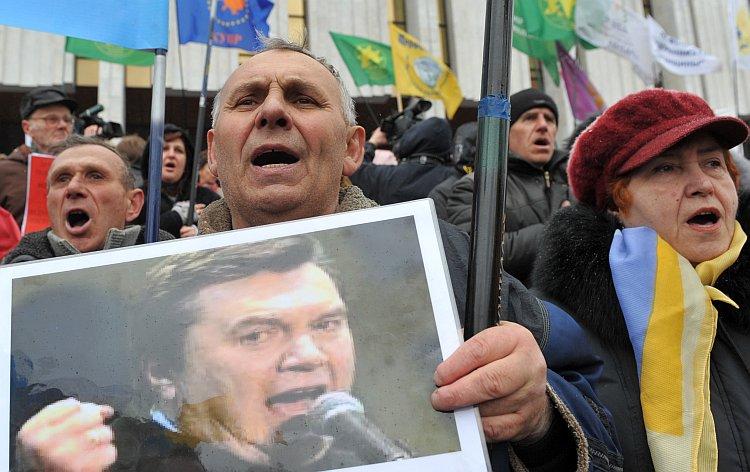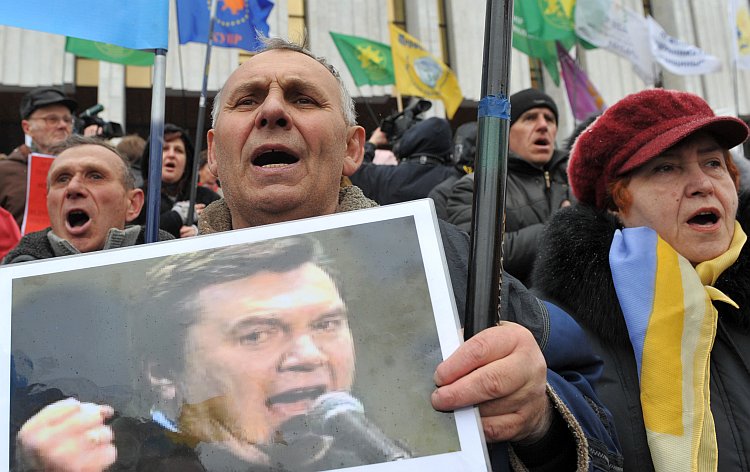KYIV, Ukraine—Ever since Igor Zaprudskiy, 50, owner of a small lamp store in Eastern Ukraine, decided to take up the fight against the corruption, which has battered him and other small business owners, the authorities have come down hard on him.
Zaprudskiy has been running his business for 10 years, and heads a union of entrepreneurs in the eastern city of Lugansk. His annual turnover is around $50,000, an amount Zaprudskiy says he doesn’t make any profit on. Rising prices have led customers to buy less, he says.
But it’s the corruption that really hurts Zaprudskiy said. Small business owners are subjected to what they call “corrupt-taxes” and bribes. A new tax regulation imposed by President Viktor Yanukovych has failed to address these problems, making it possible for tax authorities to extort what they want largely uncontrolled, he said.
According to him, it has become normal for the authorities to extract money from small businesses, with the corrupt-taxes being three times higher than the normal ones. Forcing many small business owners to increase prices.
Zaprudskiy took to the streets two years ago when the tax regulations were first changed, and has continued to do so ever since. But for Zaprudskiy it has come at a heavy price.
Being one of the active protesters, camping near the Cabinet building in the capital Kyiv, Zaprudskiy began facing harassment from the authorities. His business started to be examined by the local fire department, tax authorities, and police, and despite having all the required documents for his shop, most of his goods were confiscated.
It was not until his case was given public attention in the local media, and fellow businessmen staged protests against his treatment, that the harassment stopped and his inventory was returned. In the end, however, prosecutors fined Zaprudskiy for the improper use of his facility, something Zaprudskiy strongly rejects.
“Local authorities, the prosecutor, the judge, and police represent a corrupt scheme,” he said. “The system is so corrupt that even if you are 100 percent right, you can’t prove it in a court.”
“There are no rules here, nor are the courts fair. It is hard for a businessman to protect his rights here,” says Zaprudskiy.
He has since sent his case to the European court of human rights. “We have got to protect our rights, to force them [to be responsible for their actions],” he says.
Over the past two years, Ukraine has seen a decline in its international rankings. A World Bank report measuring international business regulations this year rated Ukraine 152th out of a total of 183 countries, a downgrade of three positions compared to last year. When it comes to paying taxes Ukraine ranks 181th out of 183 countries.
Despite new anti-corruption laws created in 2010 that require officials to report their income, little has changed. On the corruption perception index by Transparency International, Ukraine has dropped to the 152nd place from the 134th. Ukraine now sits among countries such as Russia, Azerbaijan, Belarus, and many African nations.
Zaprudskiy came to Kyiv again last week to protest with other entrepreneurs from different regions to stage a demonstration against “red-tape tyranny” and bribery inside customs offices in the country.
Galina Vdovina, a member of the customs regulation union, said they have sent a letter to the president of Ukraine on behalf of 5,000 freight shippers, expediters, and customs brokers working in the southern seaports.
“We have sent a quite honest letter … in which we openly say that bribes and corruption reached the outer limit,” she said.
She said that if a truck or a container spends overtime in customs, the freight owner will be fined, which leads to freight owners paying bribes to get their goods out of customs.
“No container can get out without bribes. Giving no explanations, customs officers don’t accept and document freights,” the letter said.
Vdovina said that freight owners must pay between $500 and $2,000 in bribes per container. And while many customs officers were caught taking bribes over the last year, the situation has not improved. So far, Vdovina said, their complaints have fallen on deaf ears.






